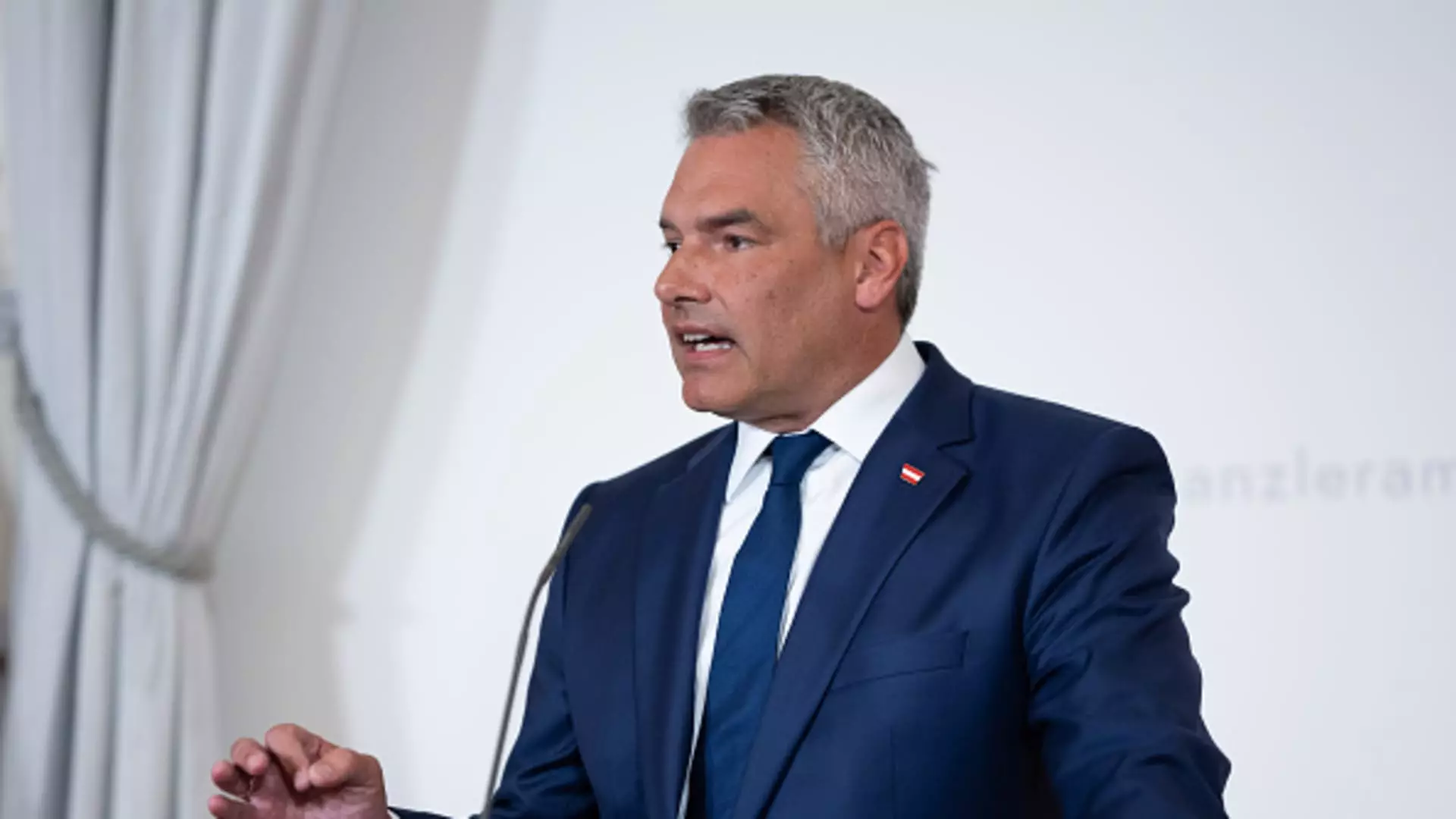The Austrian political landscape has entered a turbulent phase following the collapse of coalition talks between the centrist People’s Party (OVP) and the Social Democrats (SPO). This ongoing crisis reflects not only the internal dynamics of Austrian politics but also highlights broader challenges faced by European democracies in an age marked by rising populism and extremism. With Chancellor Karl Nehammer announcing his intention to resign after these talks deteriorated, the question arises: what does this upheaval mean for Austria’s future?
The impasse in coalition discussions was markedly visible when the liberal Neos party chose to withdraw from negotiations, pointing fingers at the inadequacies displayed by the centrist factions. The Neos’ leader criticized the other parties for not embracing the decisive actions necessary to secure a functional government. Nehammer’s resignation announcement, made via a candid video statement, underscores a pivotal moment for Austria’s political story. The OVP, which had positioned itself in opposition to the far-right Freedom Party (FPO), now finds itself grappling with internal dissent while facing an increasingly fragmented political landscape.
In the wake of recent elections, the FPO’s electoral fortitude—garnering around 29% of the vote—has placed them in a position of strength. While not gaining enough votes to govern alone, the mere presence of the FPO complicates any cooperative efforts among Austria’s mainstream parties. With Nehammer now stepping down, the task of forming a government will either fall to the FPO’s leader, Herbert Kickl, or precipitate a call for snap elections. This dilemma not only identifies the failure of the centrist coalition but also reflects an electorate growing disillusioned with traditional alliances.
As the political arena shifts, observers must consider the implications of a potential OVP-FPO coalition, which carries the risk of elevating elements associated with far-right ideology into mainstream governance. Nehammer has publicly expressed doubts about Kickl’s suitability for leadership, labeling him as a conspiracy theorist, yet also conceding that portions of the FPO are trustworthy. This paradox presents a significant threat: the emergence of a right-wing government could reshape Austria’s domestic and foreign policy in profound ways.
The discussions surrounding governance have highlighted diverging priorities among the parties. The SPO’s insistence on wealth and inheritance taxation ran counter to OVP’s agenda, which included maintaining attractive conditions for teachers and law enforcement. The accusations exchanged among party leaders illustrate a deeper divide, where individual party agendas seem to overshadow the need for unified governance in facing pressing national issues.
Public opinion polls indicate a surge in support for the FPO, positioning them more than ten points ahead of the OVP and SPO. This trend could indicate a recalibrating of popular sentiment that might favor parties offering straightforward, albeit polarizing, positions on contentious issues such as immigration and national identity. The electorate, fatigued by failed negotiations and political infighting, may gravitate toward the FPO’s populist rhetoric, further complicating the OVP’s path to reclaiming favor with voters.
The role of president Alexander Van der Bellen becomes increasingly critical. Having reservations about potentially appointing Kickl as Chancellor, the President’s decisions will shape the immediate political future. If the OVP opts for collaboration with the FPO to form a government, the centrist party could alienate a segment of voters deeply concerned about the implications of far-right governance.
Austria’s political crisis serves as a microcosm of larger challenges faced by many European nations where traditional parties struggle to maintain stability amid rising populist sentiments. The fragmentation displayed in these coalition discussions beckons an urgent call for introspection within the political elite. As Nehammer prepares to step down, Austria stands at a crossroads that could redefine its governance models in the face of populational challenges and global dynamics. Ultimately, the decisions made in the ensuing weeks will signal not just the future of the OVP and SPO, but the broader resilience of democracy within Austria and its implications for Europe as a whole.


Leave a Reply